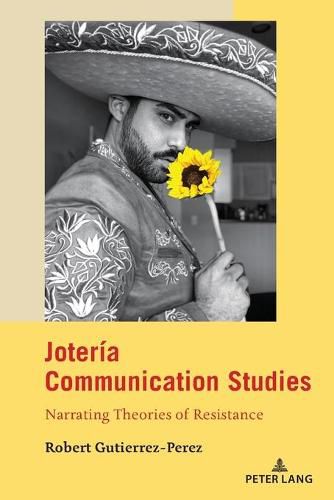Readings Newsletter
Become a Readings Member to make your shopping experience even easier.
Sign in or sign up for free!
You’re not far away from qualifying for FREE standard shipping within Australia
You’ve qualified for FREE standard shipping within Australia
The cart is loading…






This title is printed to order. This book may have been self-published. If so, we cannot guarantee the quality of the content. In the main most books will have gone through the editing process however some may not. We therefore suggest that you be aware of this before ordering this book. If in doubt check either the author or publisher’s details as we are unable to accept any returns unless they are faulty. Please contact us if you have any questions.
This book articulates Joteria Communication Studies as a subdiscipline and as a praxis for resisting multiple forms of oppression by focusing on how everyday performances of identity and culture challenge master narratives of power and control. Although this book is for scholars, artists, and practitioners from communication studies, gender and sexuality studies, performance studies, cultural studies, or even, Latinx and Chicanx studies in education, sociology, history, literature, media, arts, and humanities, this book speaks to and with those nonheteronormative mestizas/os who perform their sexuality and gender in queer practices and communicative forms-Joteria. As a methodological intervention into the study of marginalized and subaltern communities, this book provides research on Gay, Bisexual, Transgender, Queer, and Questioning (GBTQ) Chicano and Latino communities from specific geographic regions of the U.S. Southwest. Utilizing multiple methods, this book provides a cultural map or political snapshot of a particular time and place from a particular point of view or location and generates knowledge that highlights reflexivity, cultural/queer nuances, and decolonial acts of resistance. Specifically, this book locates theories in the flesh in the borderlands narratives of Joteria, such as cuentos, platicas, chisme, testimonio, mitos, and consejos. These theories of power and resistance create knowledge about how Joteria make sense of their own difference, how people interpret their assumed or perceived difference, and ultimately, how difference is managed as an emancipatory tool toward the goal of queer of color world making.
$9.00 standard shipping within Australia
FREE standard shipping within Australia for orders over $100.00
Express & International shipping calculated at checkout
This title is printed to order. This book may have been self-published. If so, we cannot guarantee the quality of the content. In the main most books will have gone through the editing process however some may not. We therefore suggest that you be aware of this before ordering this book. If in doubt check either the author or publisher’s details as we are unable to accept any returns unless they are faulty. Please contact us if you have any questions.
This book articulates Joteria Communication Studies as a subdiscipline and as a praxis for resisting multiple forms of oppression by focusing on how everyday performances of identity and culture challenge master narratives of power and control. Although this book is for scholars, artists, and practitioners from communication studies, gender and sexuality studies, performance studies, cultural studies, or even, Latinx and Chicanx studies in education, sociology, history, literature, media, arts, and humanities, this book speaks to and with those nonheteronormative mestizas/os who perform their sexuality and gender in queer practices and communicative forms-Joteria. As a methodological intervention into the study of marginalized and subaltern communities, this book provides research on Gay, Bisexual, Transgender, Queer, and Questioning (GBTQ) Chicano and Latino communities from specific geographic regions of the U.S. Southwest. Utilizing multiple methods, this book provides a cultural map or political snapshot of a particular time and place from a particular point of view or location and generates knowledge that highlights reflexivity, cultural/queer nuances, and decolonial acts of resistance. Specifically, this book locates theories in the flesh in the borderlands narratives of Joteria, such as cuentos, platicas, chisme, testimonio, mitos, and consejos. These theories of power and resistance create knowledge about how Joteria make sense of their own difference, how people interpret their assumed or perceived difference, and ultimately, how difference is managed as an emancipatory tool toward the goal of queer of color world making.